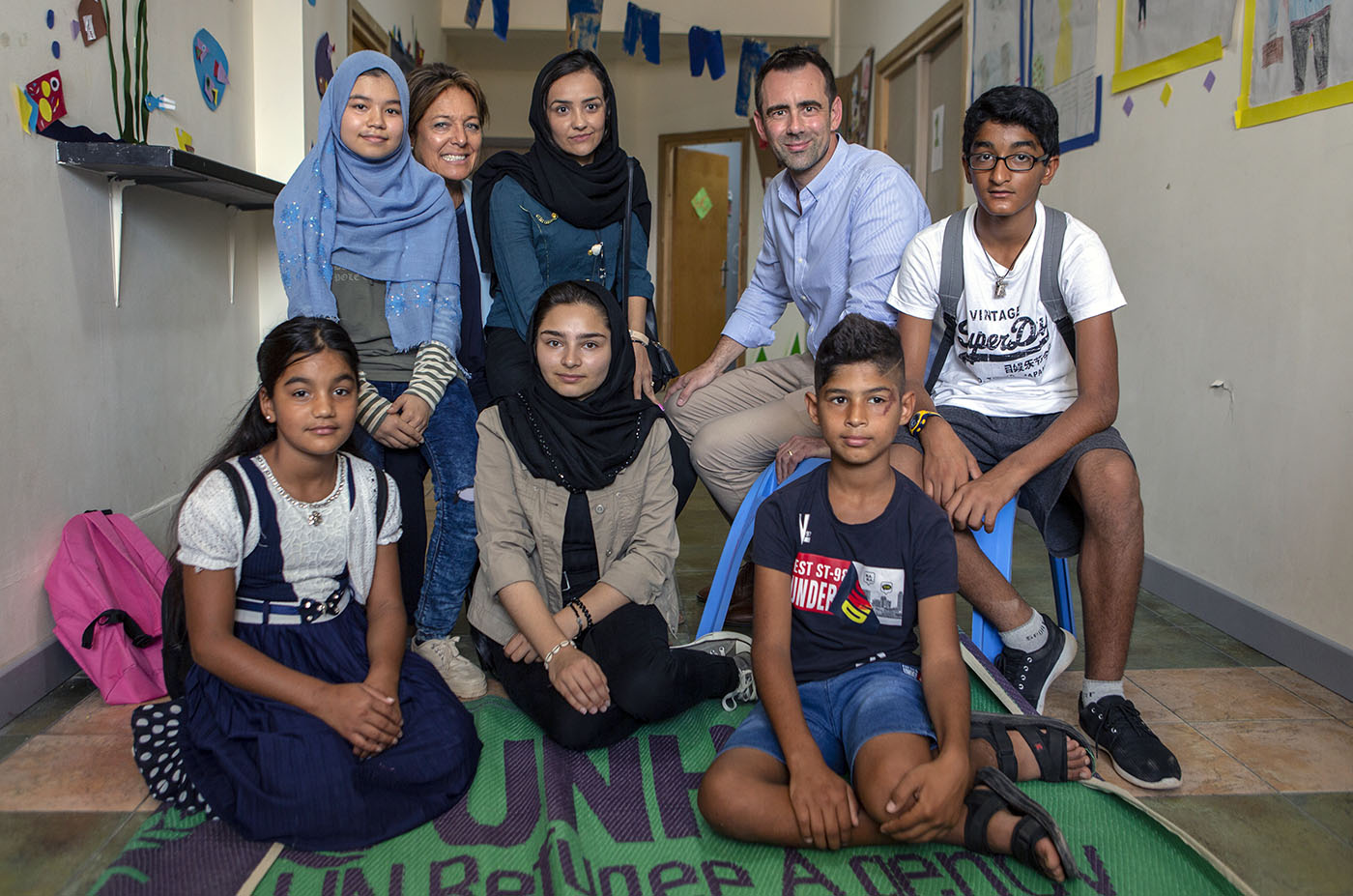$21 Million Needed to Continue Refugee Education in Greece

While the world has turned its attention to the COVID-19 pandemic, refugee children on the Greek Islands fear being forgotten and deprived of any learning opportunities. A report published today by Theirworld and the Global Business Coalition for Education shows that vulnerable children who have fled conflict in Syria or Afghanistan are now in danger of being abandoned by donors.
The best chance for these children, while being stuck in limbo on Europe’s doorsteps, is to be able to continue learning. Yet, their education is at risk of coming to an end. Funding for existing education programs will run out when the Greek school year closes at the end of June, but major donors – such as the European Union and other European countries – have not confirmed any additional funding. According to Theirworld’s research, €20 million (about $21 million USD) is needed to safely keep operating educational programs operated by UNICEF, UNHCR, and local aid groups for another two years.
Closure would deprive children of badly-needed classes, which give them a sense of normality and the chance to imagine a better future. “Even if only for a few hours a day, these classes offer a stark contrast to their existence in overcrowded camps blighted by poor diet, sanitation, high tension, and sometimes violence,” said Justin van Fleet, President of Theirworld and Executive Director of GBC-Education.
In the past year, Theirworld’s partnership with the Nationale Postcode Loterij and Education Cannot Wait has made it possible for local organizations, UNHCR, and UNICEF to help thousands of young children on islands receive an education. Through the Global Business Coalition for Education’s REACT initiative, additional work is underway to bring more support from the business community to deliver education.
Refugees on the islands – chiefly Lesvos, Kos, Samos, and Chios – arrive after perilous boat journeys from Turkey. Some have gone without schooling for a year or more during their journey or because of conflict. As of late 2019, less than a third of 5,300 school-age refugee children on the islands were receiving any schooling. There are now likely to be close to 6,000 potential students as refugee numbers continue to rise.
The Global Business Coalition for Education is now asking its member companies and business partners to respond to this specific education crisis and ensure refugee students in Greece have a better future. According to van Fleet, “We are calling on any company, foundation, or philanthropist to join these efforts and help refugee children on Greek islands who have already suffered too much.”
Learn more about refugee education by downloading Theirworld’s full report and signing-up for future emails to learn how you can take action to support these children.
